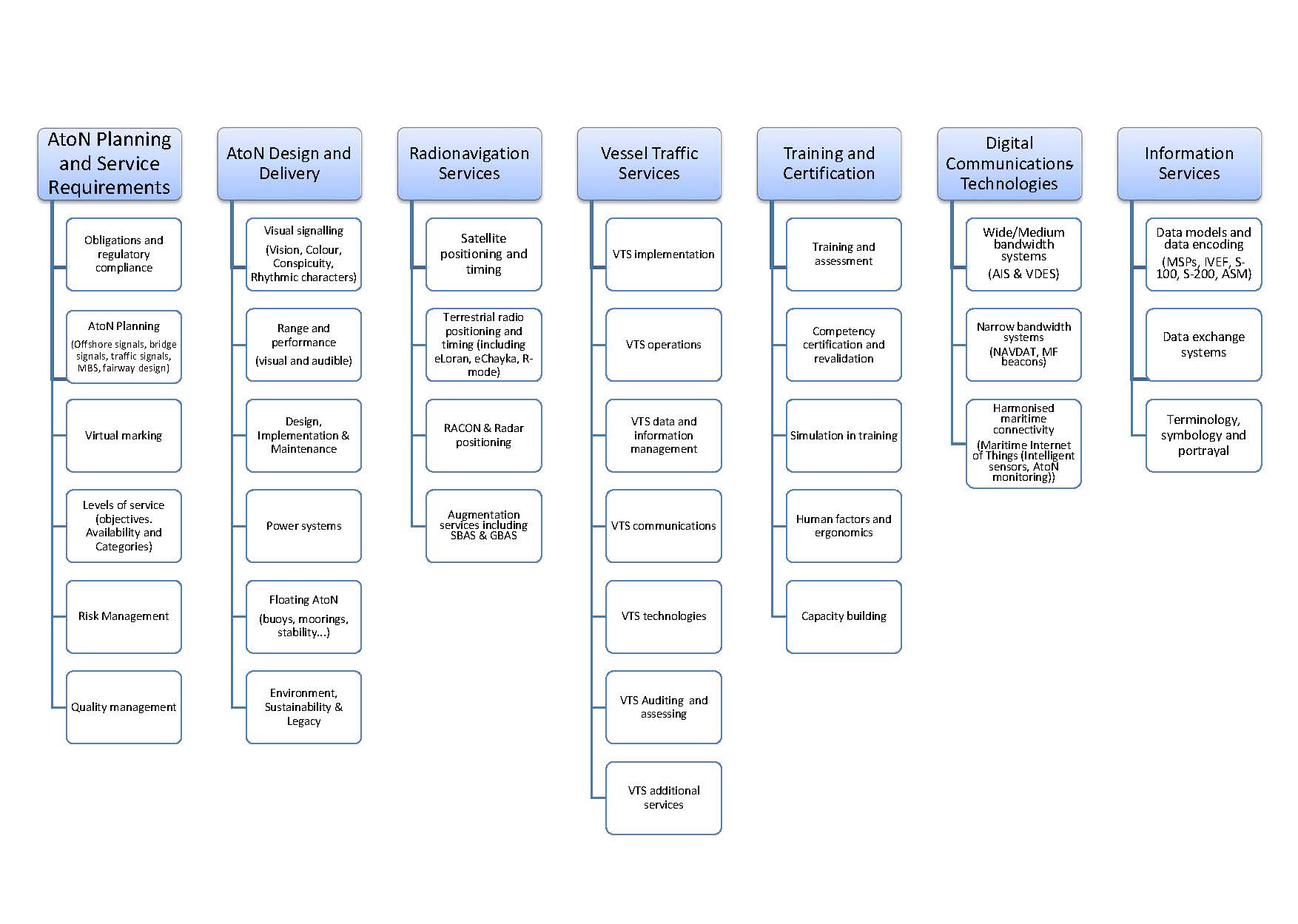IALA Standards adopted at 13th General Assembly on 29th May 2018 in Incheon Republic of Korea
Following the adoption of the Strategic Vision by the General Assembly in May 2014, the Council approved the hierarchy for technical documents during its December 2014 session. This hierarchy was Standard / Recommendation / Guideline / Manual / Model Course.
At subsequent sessions of Council, the relationship and content of these documents were considered, and taking advice from the Committees, the Legal Advisory Panel, and the Policy Advisory Panel, Council agreed the relationships and content of the five documents.
| Standard | IALA Standards form a framework, implementation of which by all coastal states will harmonize marine aids to navigation worldwide. IALA standards cover technology and services and are non‐mandatory. |
| Recommendation | IALA Recommendations specify what practices shall be carried out in order to comply with a Recommendation, and may be referenced, in full or in part, in an IALA Standard. |
| Guideline | IALA Guidelines describe how to implement practices normally specified in a Recommendation. |
| Manual | IALA Manuals provide an overall view of a wide subject area. The IALA Dictionary is considered a Manual. |
| Model Course | IALA Model Courses are training documents which define the level of training and knowledge needed to reach levels of competence defined by IALA. |
Unlike the standards issued by some other organizations, an IALA Standard will not carry technical content. It is simply a vehicle for referencing Recommendations. Recommendations may be referenced as Normative or Informative, where the meaning is:
Normative provisions are those with which it is necessary to conform in order to claim compliance with the Standard.
Informative provisions are those which specify additional desirable practices but with which it is not necessary to conform in order to claim compliance with the Standard.
Organisations providing marine aids-to-navigation would “self certify” their compliance. Standards are not mandatory but recommended to members for adoption. They are suitable for citation in national legislation or regulations. IALA does not expect members to seek compliance evidence from accreditation organizations.
A Recommendation referenced in a Standard will always mean the most recent version.
At the 13th General Assembly held on 29th May 2018 in Incheon, Republic of Korea, seven standards were introduced, which respond to Goal One of the Strategic Vision adopted by the 12th General Assembly in 2014, and re-affirmed by the same 13th General Assembly.
The General Assembly approved the following seven Standards as submitted in input papers A13-6.1 to A13-6.7, namely:
- Standard 1010 –AtoN Planning and Service Requirements
- Standard 1020 – AtoN Design and Delivery
- Standard 1030 – Radionavigation Services
- Standard 1040 – Vessel Traffic Services
- Standard 1050 – Training and Certification
- Standard 1060 – Digital Communication Technologies
- Standard 1070 – Information Services
The General Assembly adopted the associated Resolution A13-03.
This is a great step forward for IALA, and for its Goal of harmonising marine aids to navigation worldwide by 2026.

